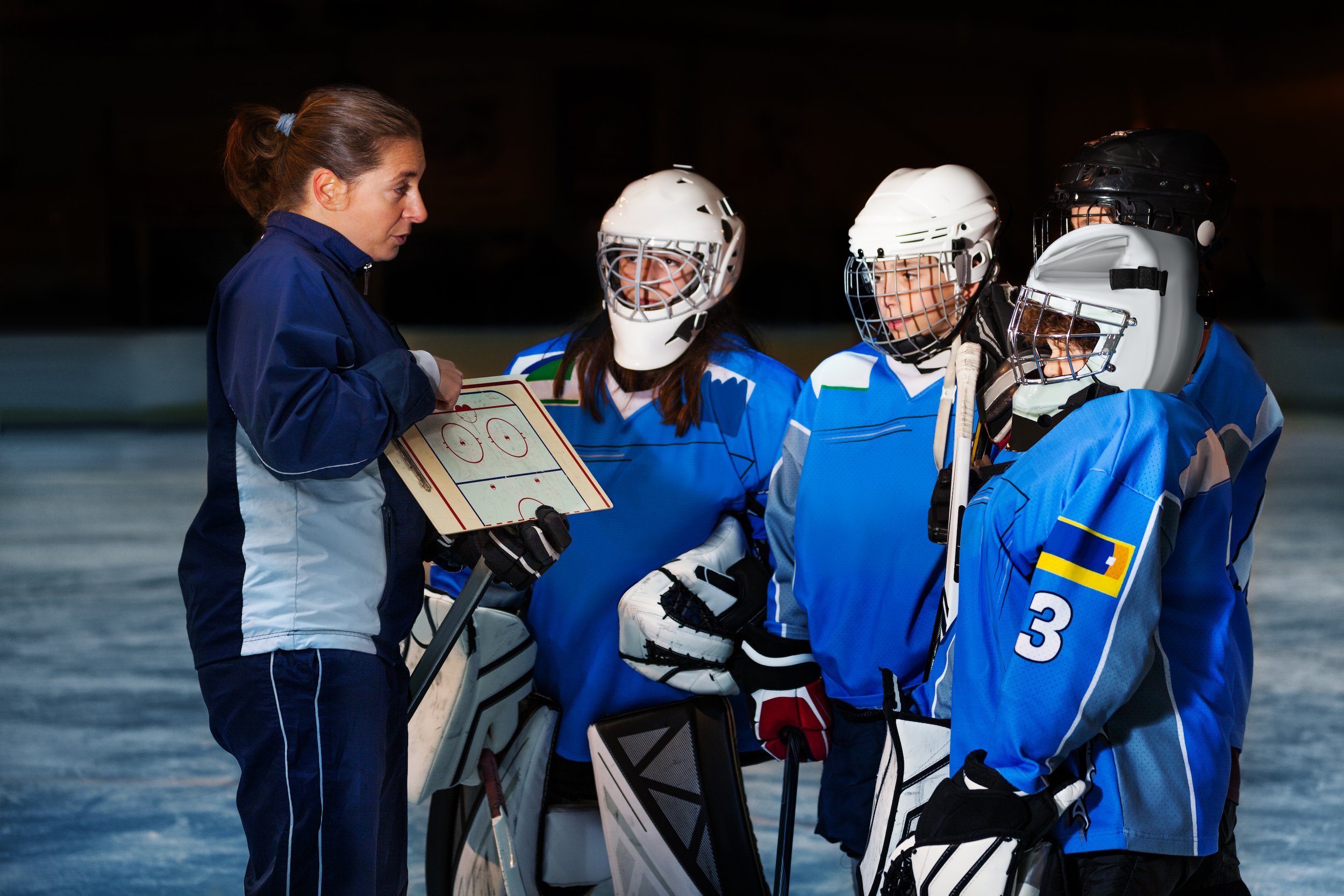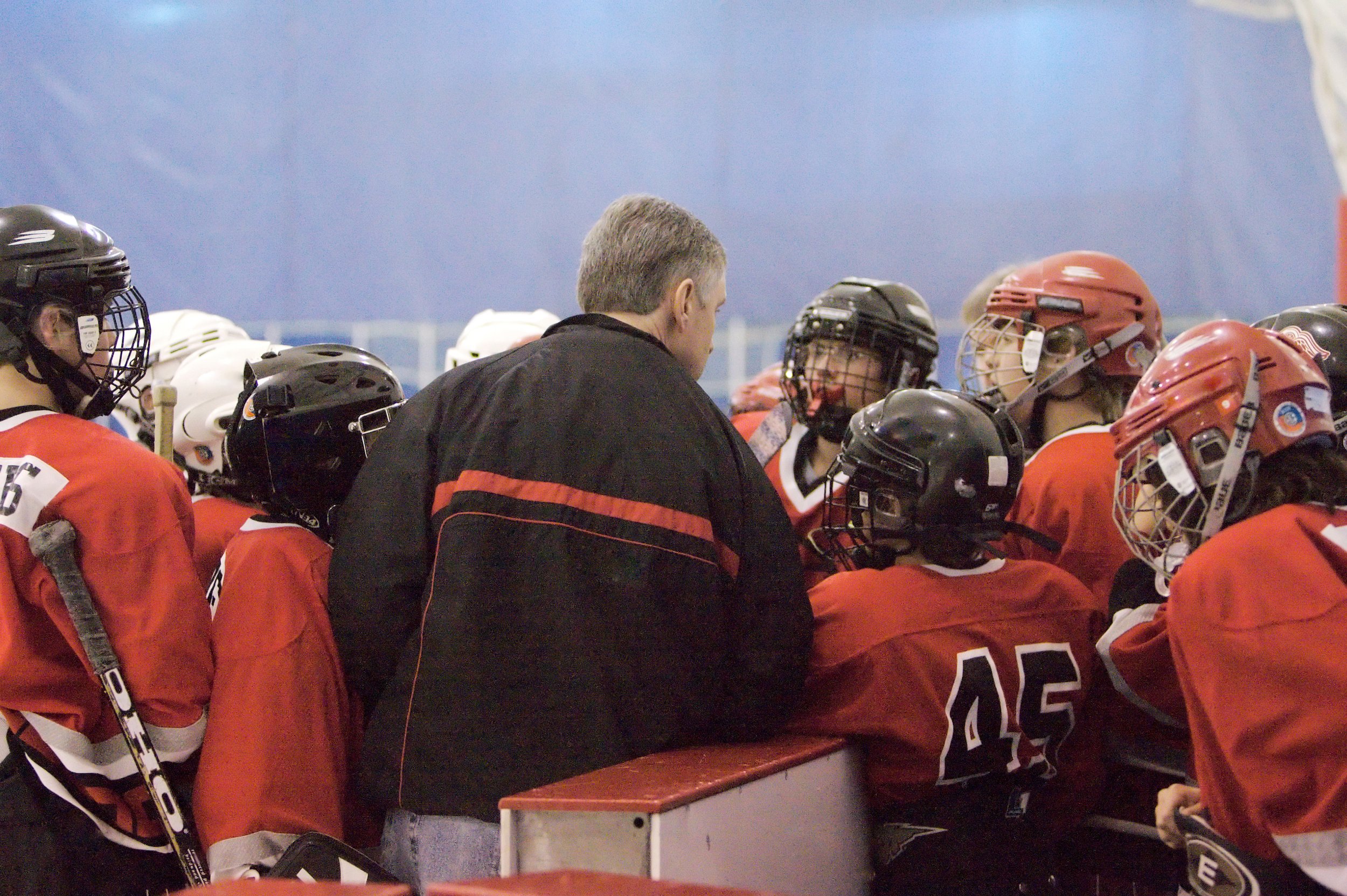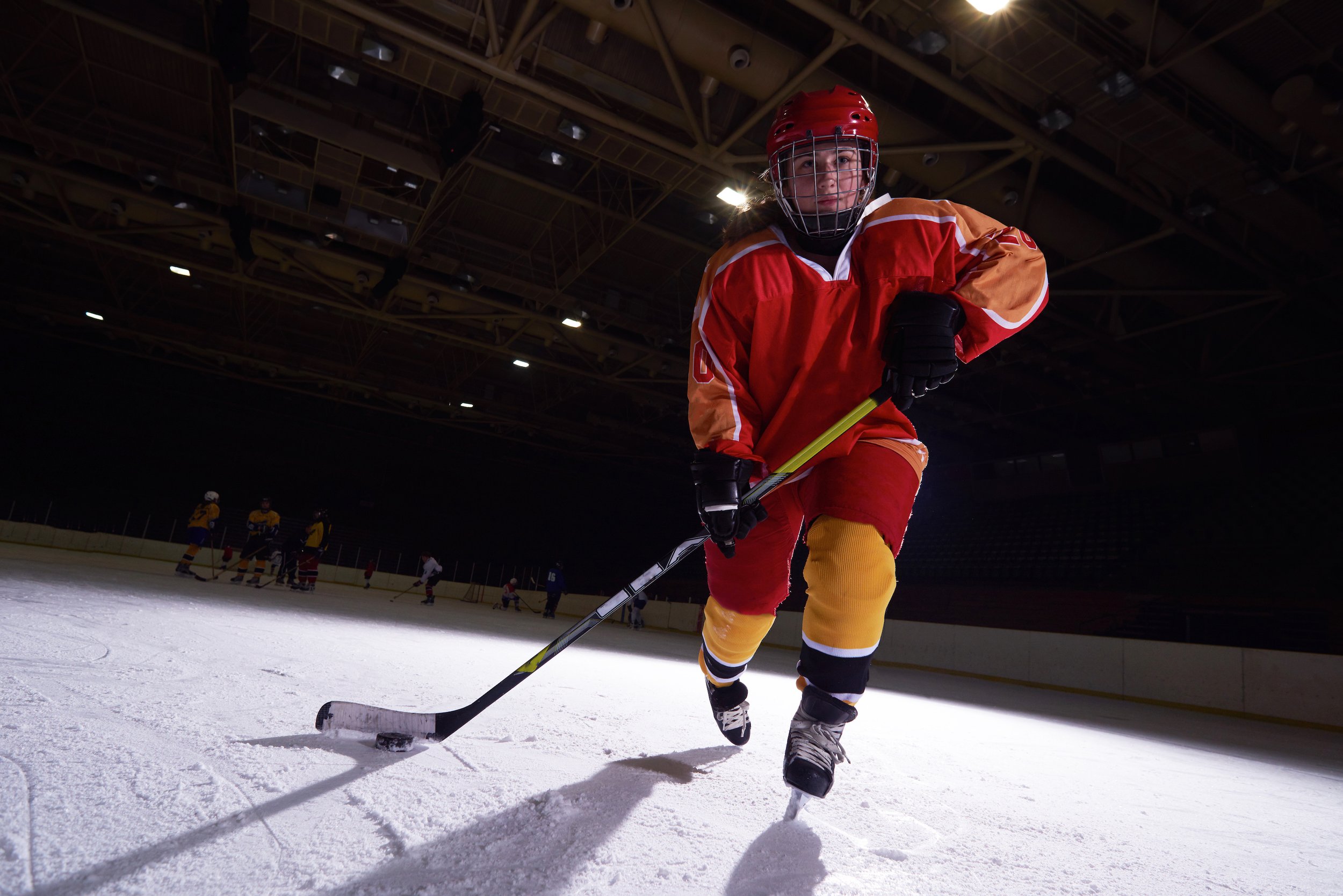
The Mental Edge Playbook
No clichés. No hype. Just real stories, strategies, and mindset tools for hockey players who want to lead, compete, and win from the inside out.
Hockey Team Culture vs Climate: Understanding the Key Differences
By focusing on creating a positive team climate that values diversity and inclusion, you can help to build a more successful and effective team. Just like my experience with the publishing company, a positive mission and purpose can be overshadowed by an unhealthy work climate.
The Journey to Inclusive Leadership: Exploring the Five Stages for Hockey Coaches
Your desire to level up your inclusive leadership skills demonstrates your passion to grow personally and professionally. As a hockey coach, you have the opportunity to make a difference in your community by helping the marginalized, oppressed, and providing a voice to those who do not possess one.
Coaching vs Mentoring in Hockey: What's the Difference?
While mentoring and coaching may seem similar on the surface, they have distinct objectives and outcomes. Mentoring is a long-term practice that helps you develop a range of skills and competencies, while coaching is a short-term intervention that helps you overcome a specific challenge or achieve a particular outcome.
Transparency vs Vulnerability in Hockey Coaching: Which Approach is More Effective?
Transparency and vulnerability are often used interchangeably, but they are very different concepts. As a hockey coach, it's important to choose vulnerability over transparency in order to build a deeper connection with your team and create a culture of openness and growth.
How Engagement Can Help Hockey Teams Win More Games
In hockey, engaged players are essential to winning games. All three drivers of engagement must be functioning properly, or players are vulnerable to disengagement. Disengagement leads to lower productivity - something no hockey team desires. On the other hand, engaged players lead to skyrocketing productivity and performance which leads to wins.
Building Trust: Tips for Having Courageous Conversations with Your Hockey Players
Hockey coaching is difficult. Not only do you need to know how to instruct players on drills and best processes, you also need to know how to manage complex emotional issues. These topics can include conversations around motivation, anger management, and in today's modern world - navigating around issues of inclusion and belonging.
The Science of Motivation in Hockey: Insights from Dan Pink
The science of motivation is a powerful tool for coaches and players in hockey. By understanding the drivers of motivation and applying insights from experts like Dan Pink, players can stay motivated, work towards their goals, and perform at their best on the ice. By fostering autonomy, mastery, and purpose, coaches can create a culture of motivation and success which can end losing streaks and drive their team towards greatness.
The Dangers of Overtraining in Hockey: What Every Player Should Know
Overtraining occurs when a hockey player trains excessively, without adequate rest and recovery time. This can result in physical, mental, and emotional exhaustion, as well as decreased performance on the ice. While hard work is necessary to succeed in hockey, too much of it can lead to serious problems.
Discipline Creates Freedom: Lessons from the Navy SEALs on Achieving Success in Hockey
Freedom from discipline is a powerful philosophy which can be applied to many areas of life, including the sport of hockey. It requires a proactive spirit and when followed it can produce amazing results. Take inspiration from the Navy SEALs and let discipline create freedom in hockey and your life.
The Power of Purpose in Hockey: How to Harness Your Motivation
Finding your purpose in hockey in a valuable component of a healthy hockey mindset. It can serve as your compass and guide when you feel like you are starting to lose your way. Think of it as the foundation in your thinking and planning, and let it serve as your homebase and guiding star with as you make decisions on and off the ice.
Why Quitting Isn't the Same as Giving Up: Knowing the Difference
I have quit many things in my life. This includes three start-ups, one salaried position, and one sport which I competed in competitively. I ached over each decision and some were easier to walk away from than others. All were still painful.
How Anger Can Sabotage Your Hockey Performance
Anger can have a significant impact on your hockey performance, leading to poor decision-making, lack of focus, and unsportsmanlike behavior. None of these outcomes are good for you or your teammates.
The Mental Game: How to Avoid Discouragement in Hockey
Here is a sad reality: you will fail. You will makes mistakes. You will let down yourself. You will let down your teammates. You will let down your coach. What matters in the end is how you emerge from those failures. Do you use those setbacks to learn lessons or do you them to send you several steps back in your athletic and emotional development? The choice is yours.
Mastering Your Mindset: Silencing Your Inner Critic in Hockey
The sport of hockey offers the same challenges. You question your skills. You question your talent. You question the health of your mindset. The inner critic can be a formidable obstacle that can hold you back from achieving your full potential on the ice. But, here is the good news. It does not have to be this way. You can have control.
Finding Your Flow in the Sport of Hockey: Tips for Peak Performance
Finding your "flow" in hockey can be a game-changer for your performance and enjoyment of the sport. You will feel faster. You will feel more efficient. You will block more shots. You will score more goals. The game will feel as if it were in a slow motion where you can read and see where the puck will be.
From Burnout to Passion: How to Rediscover Intrinsic Motivation in Hockey
Burnout is very real and when not managed properly it can undo any player. It can turn the greatest to good and those who are good to bad. The goal moving forward is to be self-aware and take breaks, set new goals, and change up your routines if needed. If you can approach everything with a proactive spirit, burnout can be avoided and if you are in it, these recommendations can also help you get out of it.
Breathing Techniques for Hockey Players: How Learning Conscious Breathing Can Improve Your Game
Conscious breathing is the simple act of being more mindful with your breathing. Take a proactive stance this week and plan a time to practice the technique. You only need to set aside a few minutes to get familiar with the process. Do it enough times and it will become second nature and hopefully a part of your pre-game planning procedure. The result will be a more confident and calmer you.
The Mental Game of Hockey: 5 Ways to Stay Calm Before Getting on the Ice
Paul Kariya was a prolific hockey player. He was fast. He was highly skilled. He was an amazing goal scorer for 15 seasons in the NHL. The reason he was so profound is because he never allowed himself to get rattled by the other team. He knew his purpose was to score goals so he always focused on that outcome. In tense situations, he was great at managing his feelings and emotions which him calm under pressure.
Advantages and Disadvantages of Extroverted Hockey Players: What You Need to Know
Every hockey team needs both Introverts and extroverts to truly succeed. The advantages and disadvantages offered by both personality groups is what makes every team so unique and dynamic. It is now your responsibility as a hockey player and teammate to acknowledge your strengths and mitigate your weaknesses to help set up you team for the best possibility of success.
Advantages and Disadvantages of Introverted Hockey Players: What You Need to Know
Introverts and extroverts both exist in the game of hockey. Each personality brings unique strengths and weaknesses on the ice and one is not better than the other. The key to your success though lies in your ability to dial into those strengths and find ways to mitigate your weaknesses.
Want to Level Up Your Mental Game?
Put an end to your slump and level up your confidence so you can succeed on and off the ice.




















